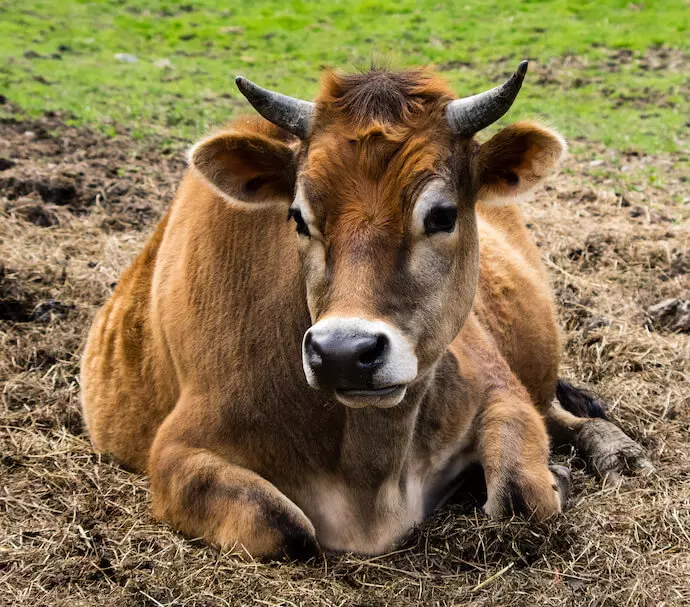
Every Day Is Earth Day: How Veganism and Animal Sanctuaries Protect Our Planet
Each April, Earth Day invites us to pause and reflect on the future of our shared home. But at Catskill Animal Sanctuary (CAS), our commitment to the planet doesn’t end when the calendar turns. Every rescued animal, every compassionate meal, and every act of advocacy speaks to a broader truth: that our treatment of animals is directly tied to the health of our environment. In this moment of deepening climate crisis, understanding that link is no longer optional. It is essential.
The Environmental Toll of Animal Agriculture
Animal agriculture is a leading driver of some of the most pressing environmental challenges of our time: greenhouse gas emissions, deforestation, water pollution, and biodiversity loss. According to the United Nations Food and Agriculture Organization, livestock farming contributes approximately 14.5% of global greenhouse gas emissions, a figure that surpasses all forms of transportation combined. These emissions include methane from digestion (primarily from cattle), nitrous oxide from manure and fertilizers, and carbon dioxide from land-use changes such as deforestation.
The industry is also notoriously inefficient in its use of natural resources. Though livestock take up 77% of global agricultural land, they provide only 18% of calories consumed by humans (Our World in Data). The land used for grazing and growing feed crops often comes at the expense of forests, wetlands, and grasslands, which are critical ecosystems for carbon sequestration and wildlife. In the Amazon, for example, 80% of deforestation is directly linked to cattle ranching (WWF).
Water use is equally staggering. Producing just one pound of beef requires nearly 1,800 gallons of water, compared to 39 gallons for a pound of vegetables (Water Footprint Network). Runoff from factory farms, laden with nitrates, phosphates, and antibiotics, pollutes rivers, lakes, and oceans, contributing to dead zones like the one in the Gulf of Mexico, where marine life cannot survive.
The ecological cost is immense, but so is the opportunity: by reducing reliance on animal products, we can dramatically reduce emissions, preserve precious ecosystems, and conserve vital resources.

Veganism as a Climate Solution
Transitioning to a plant-based diet is among the most impactful personal choices one can make to combat environmental degradation. A landmark 2018 study from the University of Oxford concluded that adopting a vegan diet can reduce food-related greenhouse gas emissions by up to 70%, land use by 76%, and water use by 50% (Poore & Nemecek, 2018). These reductions are not minor tweaks to an inefficient system; they represent a transformational shift in how we relate to food, animals, and the planet.
Beyond emissions and resource use, a plant-based food system offers crucial benefits for biodiversity. Industrial animal agriculture is a primary driver of habitat destruction, threatening thousands of species with extinction. By replacing meat, dairy, and eggs with plant-based alternatives, we reduce the demand for monocultures like soy and corn used for feed, and we allow ecosystems to recover. A 2023 study published in Nature Food found that global adoption of a vegan diet could reduce wildlife habitat destruction by 66% (Nature Food, 2023).
In addition to environmental benefits, plant-based diets support public health by reducing the risk of zoonotic disease outbreaks, antibiotic resistance, and food insecurity, issues that are increasingly exacerbated by climate change.

Catskill Animal Sanctuary’s Role in Climate Advocacy
At Catskill Animal Sanctuary, our work is rooted in a simple but radical idea: that farmed animals are not commodities, but individuals worthy of safety, dignity, and joy. Since 2001, CAS has rescued more than 5,000 animals from abuse, neglect, and exploitation, many from the very industries driving ecological collapse. But we are not simply a place of refuge. We are a force for systemic change.
Through public tours, school programs, and digital outreach, CAS educates thousands of people each year about the connection between animal agriculture and climate change. Our storytelling centers the lives of animals like Tucker, a 3,000-pound steer who greeted guests with gentleness, and Bartleby, the mischievous goat whose limp never slowed him down. These stories invite visitors to expand their circle of compassion and reconsider what’s on their plate.
Our advocacy also extends beyond the barnyard. CAS actively participates in climate conversations at the local and national level, emphasizing the role of animal agriculture in environmental policy. Through public commentary and campaign initiatives, we amplify the call for a plant-based food system as a climate imperative. We’re proud that 93% of non-vegan visitors to CAS report a willingness to reduce or eliminate animal products after their visit (CAS Visitor Survey).
Finally, by removing animals from the supply chain entirely, sanctuaries like CAS help slow the expansion of factory farming and reduce the demand for land conversion, chemical inputs, and freshwater withdrawals.

A Call to Action
We are living through a pivotal chapter in planetary history. The science is clear, the solutions are within reach, and the clock is ticking. Adopting a plant-based diet is not a niche lifestyle choice; it is a moral and ecological necessity. Supporting sanctuaries like Catskill Animal Sanctuary helps dismantle the industries most responsible for climate breakdown, while uplifting a vision of compassion, justice, and regeneration.
You don’t have to be perfect to make a difference. Start where you are. Eat more plants. Visit a sanctuary. Share what you learn. Donate if you can. In a world that too often tells us we are powerless, these choices are acts of resistance—and of love.
Conclusion
At Catskill Animal Sanctuary, we believe that love is spoken here—in the rustle of hay, the nuzzle of a cow, and the quiet revolution of a meal made without harm. Every day is Earth Day when we recognize our interdependence with all beings and take responsibility for the future we’re creating. Join us in building a world where kindness leads the way.
To learn more or get involved, visit casanctuary.org.
References
- United Nations Food and Agriculture Organization. Livestock’s Long Shadow: Environmental Issues and Options. https://www.fao.org/4/a0701e/a0701e00.htm
- Our World in Data. Environmental impacts of food production. https://ourworldindata.org/environmental-impacts-of-food
- World Wildlife Fund (WWF). Deforestation in the Amazon. https://www.worldwildlife.org/places/amazon
- Water Footprint Network. Water Footprint of Animal Products. https://waterfootprint.org/media/downloads/Report-48-WaterFootprint-AnimalProducts-Vol1_1.pdf
- Poore, J., & Nemecek, T. (2018). Reducing food’s environmental impacts through producers and consumers. Science, 360(6392), 987–992. https://science.sciencemag.org/content/360/6392/987
- Clark, M., Springmann, M., Hill, J., Tilman, D. (2023). Global adoption of plant-based diets could significantly reduce habitat destruction. Nature Food. https://www.nature.com/articles/s43016-023-00795-w
- The Guardian (2023). Vegan diet significantly reduces environmental damage, major study finds. https://www.theguardian.com/environment/2023/jul/20/vegan-diet-cuts-environmental-damage-climate-heating-emissions-study
- Catskill Animal Sanctuary. Animals as Partners in Our Work for a Vegan World: A Response to Effective Altruism. https://casanctuary.org/animals-as-partners-in-our-work-for-a-vegan-world-a-response-to-effective-altruism
- FAO. Tackling Climate Change Through Livestock. https://www.fao.org/3/i3437e/i3437e.pdf
- Oxford Martin School. Vegan diet has just 30% of the environmental impact of a high-meat diet. https://www.medsci.ox.ac.uk/news/vegan-diet-has-just-30-of-the-environmental-impact-of-a-high-meat-diet-major-study-finds
- Wikipedia. Veganism, Greenhouse Gases, and Land Use. https://en.wikipedia.org/wiki/Veganism, https://en.wikipedia.org/wiki/Meat_alternative





